Shapers Of Business Institutions Series
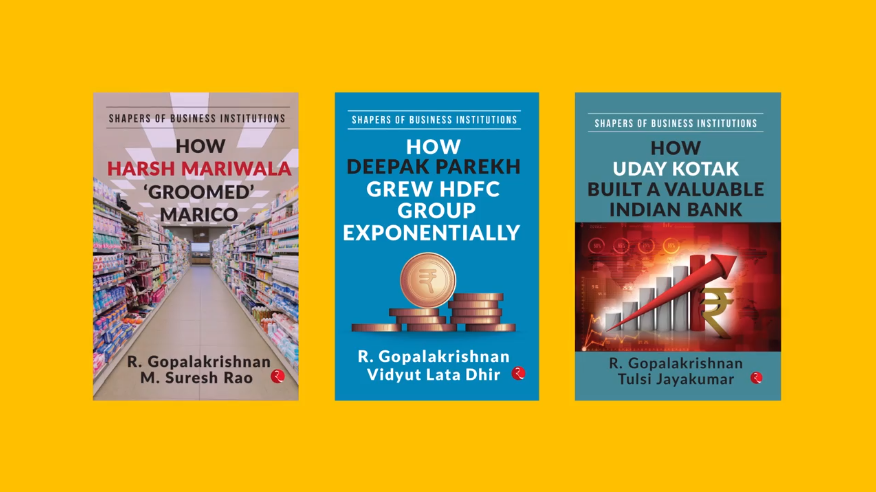 What makes some organizations long-lasting? How come some chart a new course which others like to follow?
What makes some organizations long-lasting? How come some chart a new course which others like to follow?
Does this characterize them as ‘business institutions’ rather than merely ‘good companies’? How do two business leaders with radically different management styles embed values and practices into the sinews of a corporation through their thoughts and actions?
Shapers of Business Institutions series aims at helping you understand the difference between a well-run company and a business institution. The series is a unique blend of must-read business biographies and management classics.
The following are the latest three books in the series
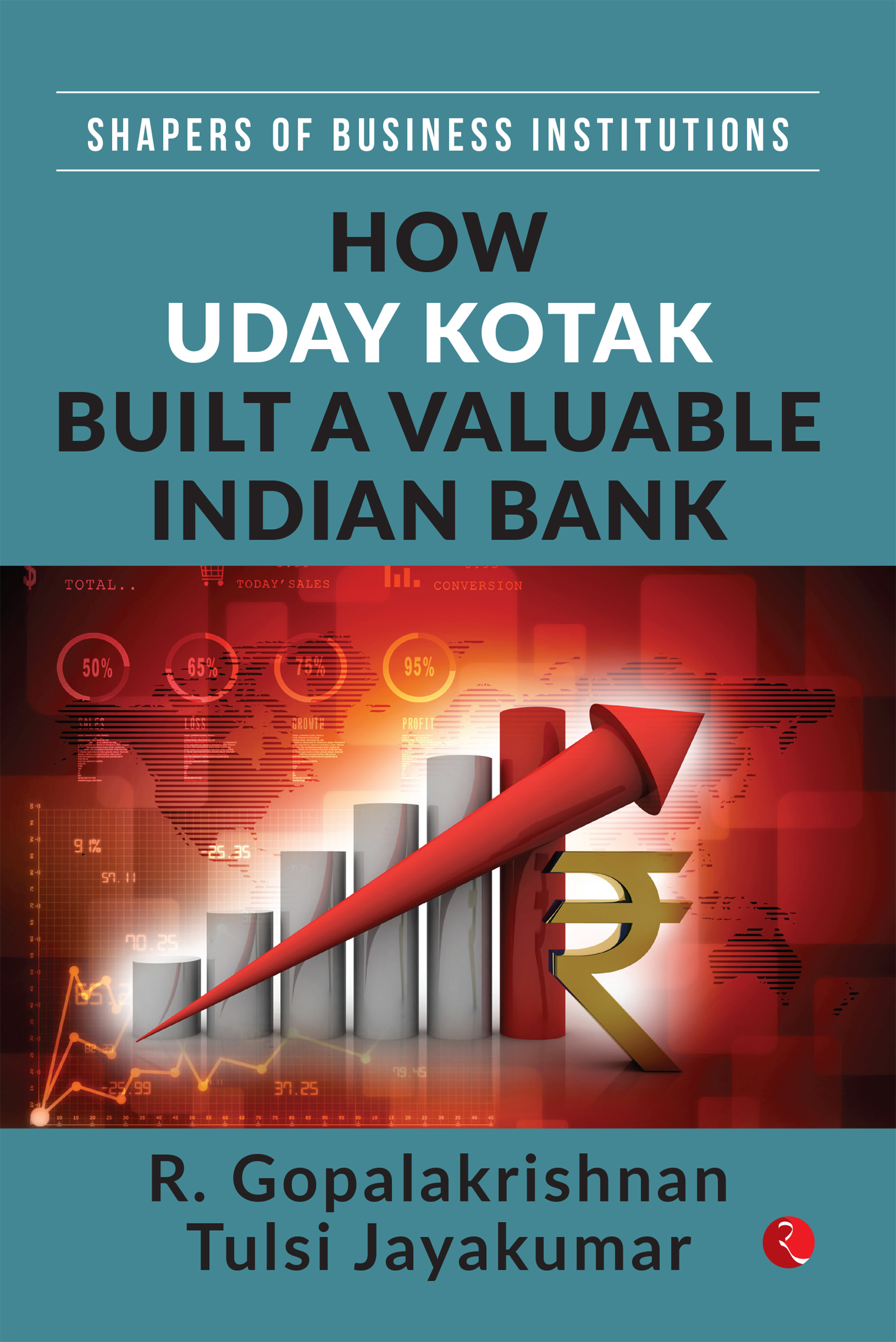
How did Uday, a scion of a well-established cotton trading family, break away from the ready nest-egg offered by the traditional family business to set up his eponymous Kotak Mahindra Bank, known for being one of the most expensive bank stocks in the world?
‘How Uday Kotak Built a Valuable Indian Bank’ recounts the story of a young man, brought up in a family with Gandhian values and a simple middle-class ethos, who just wanted to be a professional cricketer. With a foiled dream and a deep desire to do ‘something on my own’, Uday started out with an MBA degree and an innate ability to spot unseen business opportunities, to set up a company in the small office space provided by his father. The company crossed various trials by fire in tandem with India’s economy to emerge as the bank with the highest market price to book ratio in the world, a measure that indicates the efficiency of the bank in value creation as perceived by investors. Based on personal interviews with Uday, his Kotak team and friends, readers will learn what it takes to create a world-class financial conglomerate with international standards of corporate governance and asset efficiency.
How Uday Kotak Built a Valuable Indian Bank is the sixth and final book in the series, Shapers of Business Institutions.
Get the book here.

Harsh Mariwala, just out of college, joined Bombay Oil Industries Ltd (BOIL) as the fourth generation scion in his family’s traditional spice trading and consumer oil manufacturing business. He learned the key drivers of growing a profitable consumer product business on the field in the inhospitable hinterlands of Maharashtra and Gujarat—the first Mariwala to do so. Alongside, through reading and taking the initiative to learn from mentors, national and global, he soaked up the essentials of building sustainable brands and creating a multi-channel network in sync with the times. He demonstrated vision and leadership in transforming the quality conscious, traditionally run, family commodity business to a professionally managed, branded consumer goods giant—Marico—in the face of well managed international competition in the Indian market. Marico is today an emerging market multi-national with a noticeable presence in the domain of branded health and beauty products, making a difference to peoples’ lives in 25 countries.
Get the book here.
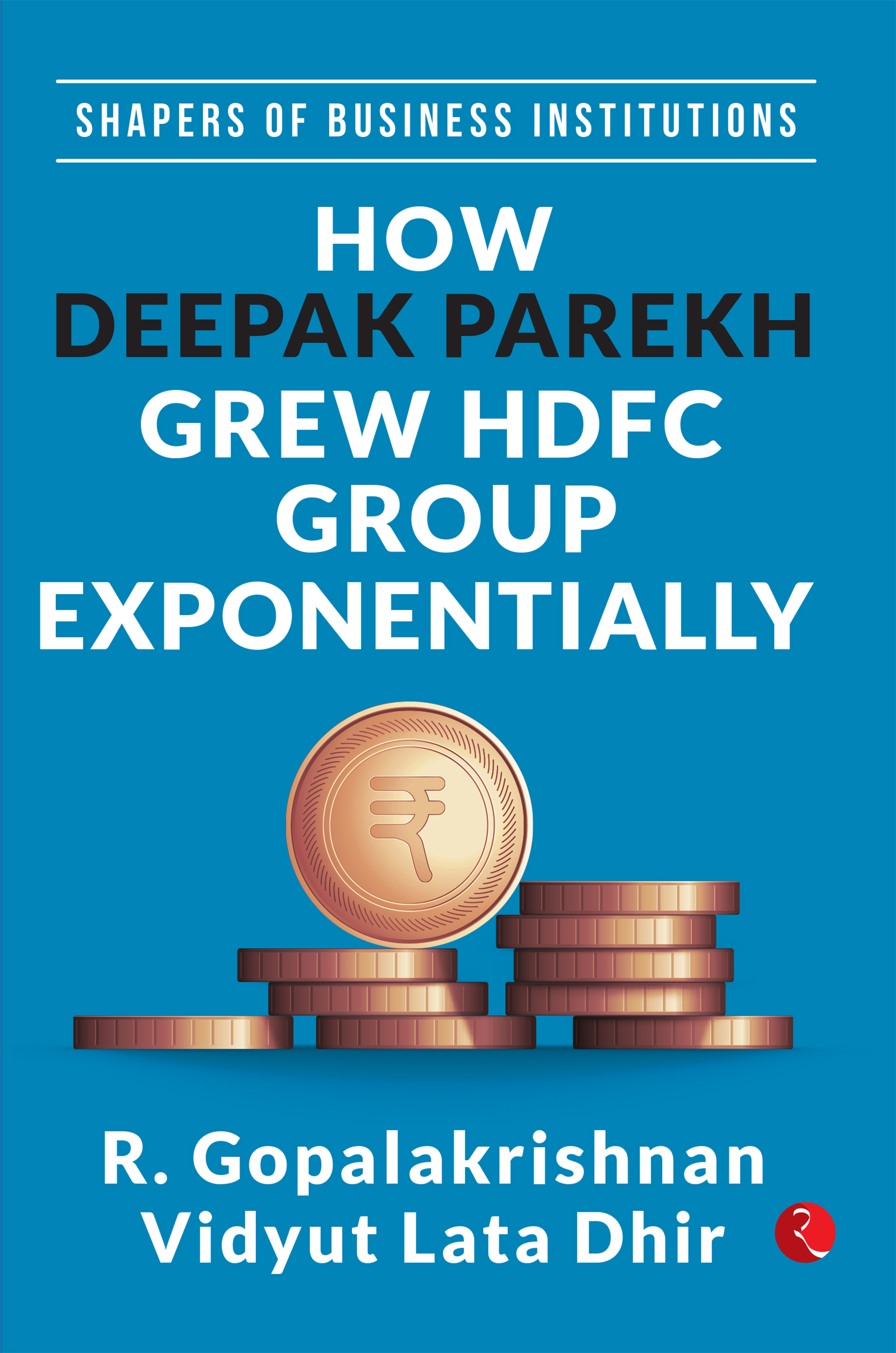
The 1970s in India were dark times of high tax slabs, land sharks and black money. When loans were a last resort meant for emergencies and buying a house was beyond aspiration, possible only at retirement, nobody was willing to bet on the repayment capacity of the ignored middle class, except one man. This invisible class went on to become the primary potential customer base for Housing Development Finance Corporation (HDFC). The rest as they say is history.
While HDFC was Hasmukh Thakordas Parekh’s brainchild, it was his nephew Deepak Parekh who shaped it. Parekh left a comfortable overseas job with a plum salary and exclusive perks to join his uncle’s mortgage company at a 50 per cent pay cut. He nurtured HDFC to become India’s largest and cleanest financial conglomerate—not just in housing finance, but later in banking, asset management and insurance too.
Get the book here.
Other books in the series:
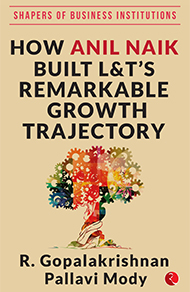
How is a ‘Shaper’ different from a manager and a business leader? A Shaper operates with a longterm vision and successfully changes the trajectory of the company to make it future ready, in the way Anil Naik shaped the future of Larsen & Toubro (L&T).
The narrative traces the spectacular five-decade-long journey of Anil Naik as a junior engineer from the shop floor to the position of MD, CEO and chairman. The story traverses through the parallel life journeys of L&T and Naik and witnesses their trials and tribulations.
Naik built the growth trajectory of L&T on the foundation of ‘value creation’ and transformed the company into an agile and competitive business conglomerate. Based on a series of personal interviews with Naik and his team, the book explores Naik’s mindset and actions that transformed L&T into a leading Indian MNC with a global footprint in fields as diverse as defence, nuclear power and aerospace to financial services, IT and engineering services.
How Anil Naik Built L&T’s Remarkable Growth Trajectory reveals ‘The Naik Way’—new theories of leadership and management as a catalyst to growth.
Get the book here.
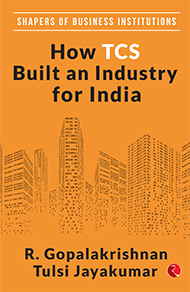
What makes some organizations long-lasting? How come some chart a new course which others like to follow?
Does this characterize them as ‘business institutions’ rather than merely ‘good companies’? How do two business leaders with radically different management styles embed values and practices into the sinews of a corporation through their thoughts and actions? These are some vital questions for India’s economic growth that find resonance in the incredible journey of India’s largest software exporter, Tata Consultancy Services (TCS). The narrative relives the highs and lows in the life of this multibillion-dollar enterprise, as seen through the eyes of its architects—Faqir Chand Kohli (96), the founder, and his successor, S. Ramadorai (75). Between them, they spent 40 years making TCS an admirable industry leader and a corporation with agility, innovation and scale.
Based on interviews with Kohli and Ramadorai, the authors provide an insider’s account of their grand vision of igniting India’s IT revolution. From the evolution of the offshoring model to harnessing the enormous opportunity offered by the Y2K problem, they offer rare insights into a company that they built, brick by brick.
How TCS Built an Industry for India is a must-read for business managers.
Get it here.
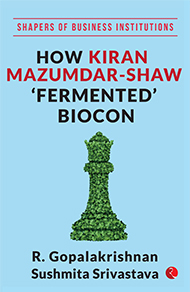
Companies and businesses can be built into great institutions, which are more than engineered processes; they are living organisms with emergent conditions, which bring an institution alive.
However, few entrepreneurial leaders break the mould of prevalent thinking and set an organization onto a growth trajectory. They operate with the rainforest rules, which are different from the model of cultivated agriculture based on control, efficiency and replicability. In the rainforest, you accept the environment and within that, you seek effectiveness and novelty.
The narrative of Biocon, India’s first and only modern bio-technology institution, led by its founder, Kiran Mazumdar-Shaw, an accidental, yet an immensely successful entrepreneur, resembles the application of these rainforest rules. This book is a first-hand account of how Biocon evolved to become an exemplary institution valued at $6 billion, with 11,000 knowledge workers. In a series of personal interviews with Kiran and her team, the authors trace the options that opened up during Kiran’s journey, how she made her choices and the outcomes that impacted the growth trajectory taken by the institution.
How Kiran Mazumdar-Shaw ‘Fermented’ Biocon is the third book in the series, Shapers of Business Institutions, which offers instructional and inspirational perspectives for aspirants in the fields of management and entrepreneurship.
Get the title here.

